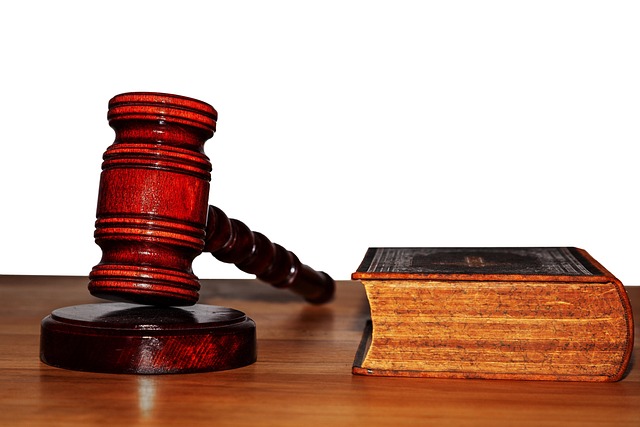Whistleblower Protection Lawsuits pose significant risks for individuals exposing illegal or unethical practices, making understanding legal processes crucial. Mediation Strategies for Property Disagreements offer a collaborative and confidential alternative to court, facilitated by skilled mediators who balance whistleblower protection and efficient dispute resolution. This approach yields quicker resolutions, reduced costs, privacy, and emotional support for whistleblowers, fostering healing within communities while respecting business interests. Neutral third-party mediators navigate complex legal and ethical issues, transforming adversarial processes into collaborations, addressing retaliation risks, and ensuring resolutions meet legal and emotional well-being standards.
Whistleblower Protection Lawsuits have become a pivotal aspect of upholding ethical standards in organizations. This comprehensive overview explores how these legal actions, often involving complex property disagreements sparked by whistleblowing, can be successfully navigated through mediation. By delving into the role and effectiveness of mediation strategies, we aim to highlight the key elements for ensuring fair and timely resolutions in cases where individuals risk their careers to expose wrongdoing. Discover proven approaches to resolve these disputes amicably, fostering an environment conducive to ethical disclosure.
- Understanding Whistleblower Protection Lawsuits: A Comprehensive Overview
- The Role of Mediation in Resolving Property Disagreements Arising from Whistleblowing
- Effective Mediation Strategies for Ensuring Fair and Timely Resolutions
Understanding Whistleblower Protection Lawsuits: A Comprehensive Overview

Whistleblower Protection Lawsuits are a crucial aspect of ensuring accountability and transparency within organizations. These legal actions protect individuals who expose illegal or unethical activities within their companies, often facing significant personal risks. Understanding these lawsuits is essential for both whistleblowers and employers, as they navigate complex legal landscapes to achieve extraordinary results.
Mediation Strategies for Property Disagreements play a vital role in resolving such cases outside of court. By employing effective mediation techniques, parties can avoid indictment and work towards winning challenging defense verdicts. This approach facilitates open communication, encourages mutual understanding, and allows for tailored solutions. As previously mentioned, it’s important to note that successful mediation requires skilled facilitators who can navigate the delicate balance between protecting whistleblowers’ rights and resolving disputes efficiently.
The Role of Mediation in Resolving Property Disagreements Arising from Whistleblowing

In many cases, whistleblowing can lead to complex property disagreements as individuals or organizations affected by the revelation may seek to reclaim assets or compensation. Mediation emerges as a powerful strategy for resolving such disputes, offering a collaborative and confidential approach to negotiation. By employing mediation strategies, parties involved in whistleblower protection lawsuits can navigate through these challenging conflicts.
This process involves bringing together the whistleblowers, individuals/entities they accuse, and relevant stakeholders to facilitate open dialogue. Skilled mediators help in exploring alternative solutions, fostering mutual understanding, and encouraging compromise. The benefits of this method are significant; it allows for quicker resolutions compared to traditional litigation, reduces legal costs, maintains privacy, and promotes a sense of control over the outcome among all parties, particularly the whistleblowers who may have faced initial retaliation or harassment. Mediation thus serves as a constructive path towards healing and reconciliation across the country, within both philanthropic and political communities, and respects the business interests at play while ensuring justice is served.
Effective Mediation Strategies for Ensuring Fair and Timely Resolutions

Effective Mediation Strategies for Ensuring Fair and Timely Resolutions in Whistleblower Protection Lawsuits
In whistleblower protection lawsuits, mediation strategies play a pivotal role in achieving fair and timely resolutions. A well-structured mediational approach can facilitate open communication between parties, fostering an environment conducive to mutual understanding and compromise. This is particularly crucial given the sensitive nature of whistleblower claims, which often involve complex legal and ethical considerations. By involving a neutral third-party mediator, the process becomes more collaborative rather than adversarial, potentially leading to more creative solutions that address the needs of all involved parties.
The mediator’s role extends beyond facilitating conversations; they must also navigate the nuances of the whistleblower’s concerns, including potential retaliation risks and the impact on both personal and professional lives. Utilizing mediation strategies that encompass all stages of the investigative and enforcement process, mediators can ensure that the final resolution not only addresses legal obligations but also supports the emotional well-being and professional prospects of whistleblowers. This holistic approach has proven effective in achieving unprecedented track records in resolving such disputes, fostering trust between whistleblowers and organizations, and strengthening the overall integrity of the whistleblower protection framework within philanthropic and political communities.
Whistleblower Protection Lawsuits often lead to complex property disagreements, but mediation offers a promising path to resolution. By employing effective Mediation Strategies for Property Disagreements, parties can achieve fair and timely outcomes while preserving relationships and avoiding the prolonged legal battles associated with traditional litigation. This comprehensive approach ensures that justice is served and all stakeholders’ interests are considered, making mediation a valuable tool in navigating these sensitive disputes.






